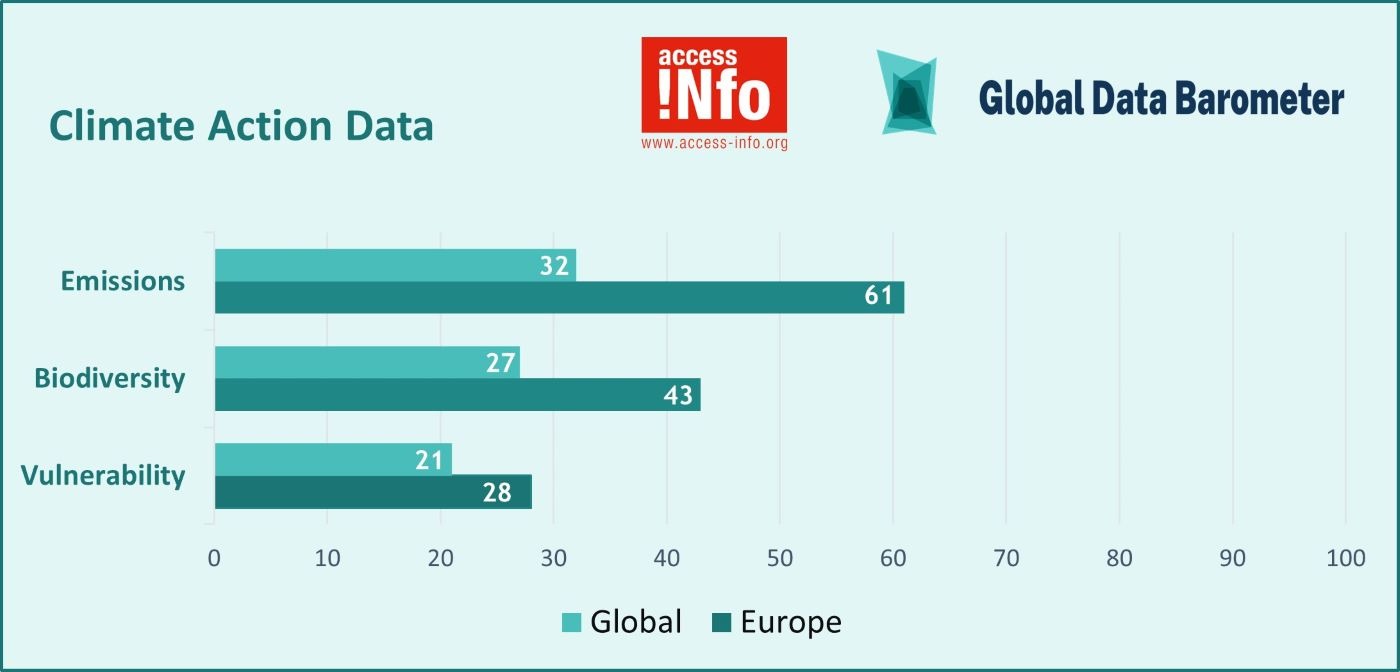Madrid, 8 December 2022 – As the UN Biodiversity Conference opens in Montreal, Canada, Access Info has raised concerns about the shortage of biodiversity data with the Global Data Barometer findings being only 43% for biodiversity data in European countries, and only 27% globally.
Our research found that no biodiversity data is published online in six (6) European countries, namely Bulgaria, Croatia, Czechia, Lithuania, Romania and Slovakia.
The Global Data Barometer also found a score for Emissions data of 61% in Europe against just 32% globally, with worrying little data on Vulnerabilities to climate change at a low 28% in Europe, only marginally above the global average of 21%.
Access Info Europe has also released data showing a huge variation in total scores on Climate Action data, ranging from 81% in Finland, to just 6% in Croatia.
For full data come to the launch of the European Global Data Barometer report on Friday 16 December 2022 at 14 hrs registration here.
Climate Action Data is one of the indicators with the poorest results in the Global Data Barometer survey of data for public good in 109 countries globally, including 21 European countries.
Helen Darbishire of Access Info commented:
“Without data, it impossible to have public discussion about, participation in, and full support for the necessary action to address the urgent issue of climate change. Governments must act now to rectify this data shortage which is making it harder to advance on a just climate transition.”
Access Info is calling for specific actions to address the current lack of data, including:
- All European Governments should take urgent steps to ensure the collection and publication of data relating to the climate and climate change. Climate Vulnerabilities should be a priority focus for ensuring that the public has access to the relevant data.
- The European Union should examine how to ensure that all relevant climate change data held by Member States is made public, such as by including this as a High-Value Dataset under the Open Data Directive as well as including it in specific regulations and directives. All RRF Funds and CAP spending that is linked to climate transition goals should also take into account the existence and publication of this data and demonstrate how the funded actions will address specific concerns, with all of this being made public.
- The Open Government Partnership should convene a discussion to focus on how to increase the availability of Climate Action data in the European region, acting as a forum for an exchange of best practices on this topic.
- Civil society organisations working on both climate change and on open data should collaborate in working to ensure that Climate Action data is made broadly available.
See here for more on Access Info’s Open Data for Democracy work

